I have been a vegan obsessed with getting 150 grams of protein per day for a few years now, and during that time I’ve come to a conclusion:
It is not hard to get vegan protein. It is hard to know what is a genuine good source of protein.
To that end, I created this guide. Look no further for the best guide to vegan protein: main sources, supplementary sources, snacks, protein powders — it has it all. Use the links below to jump around.
Main Protein Sources (protein/100 calories):
Tofu (12.0g) | Lentils (7.8g) | Tempeh (10.6g) | Seitan (19.8g) | Falafel (4.0g) | Textured Vegetable Protein (14.0g) | Beans (6.8g) | Soy Curls (10.0g)
Supplementary Protein Sources (protein/serving):
Nutritional Yeast (8g) | Tahini (7g) | Peanut Butter (7g) | Quinoa (8.1g) | Chia Seeds (4.7g) | Soymilk (8g)
Vegan Protein Snacks (protein/serving):
Edamame (11.9g) | Ezekiel Bread (6g) | Almonds (6g) | Pistachios (6g)
Vegan Protein Powders (protein/100 calories):
Vegan Whey (22.2g) | Pea Protein Powder (19g) | Soy Powder (26.3g) | Hemp Powder (10g) | Other Plant Proteins
Disclosure: Some of the links below are amazon affiliate links. I will earn an affiliate commission if you click through the link and finalize a purchase.
Main Protein Sources
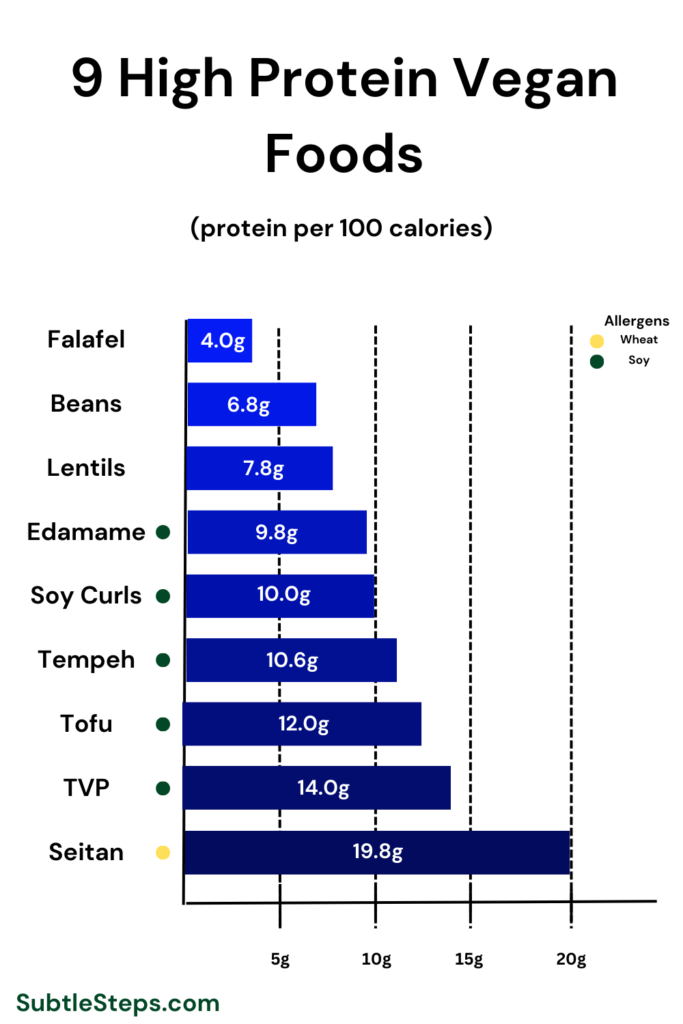
Tofu (12g/100cal)
Tofu is a flexible, tasty protein for a vegan diet. It is a minimally processed soybean derivative that is inexpensive and a great protein to put in just about any meal. A 100g protein of Tofu offers 17.3 grams of protein and 144 calories1. It is a complete protein and a great source of leucine2 — the amino acid suspected to be pivotal in muscle growth. It is also inexpensive, nutrient dense, and readily available at most supermarkets and grocery stores.
Tofu is a great source of: Protein, Iron, Calcium, Magnesium, Zinc, Selenium, Vitamin A.
Tofu Tips:
– Think tofu tastes bland? Try cooking extra firm tofu with your favorite sauces and dishes. Tofu has a spongy texture that absorbs marinade very well. Test this theory by heading to any good thai or chinese restaurant and ordering your favorite dish with fried tofu.
– Want to get inexpensive, high protein? Consider buying Trader Joe’s high protein tofu. Each pack has 600 calories and 60 grams of protein, making it a great option for heavy lifters.
Lentils (7.8g/100cal)
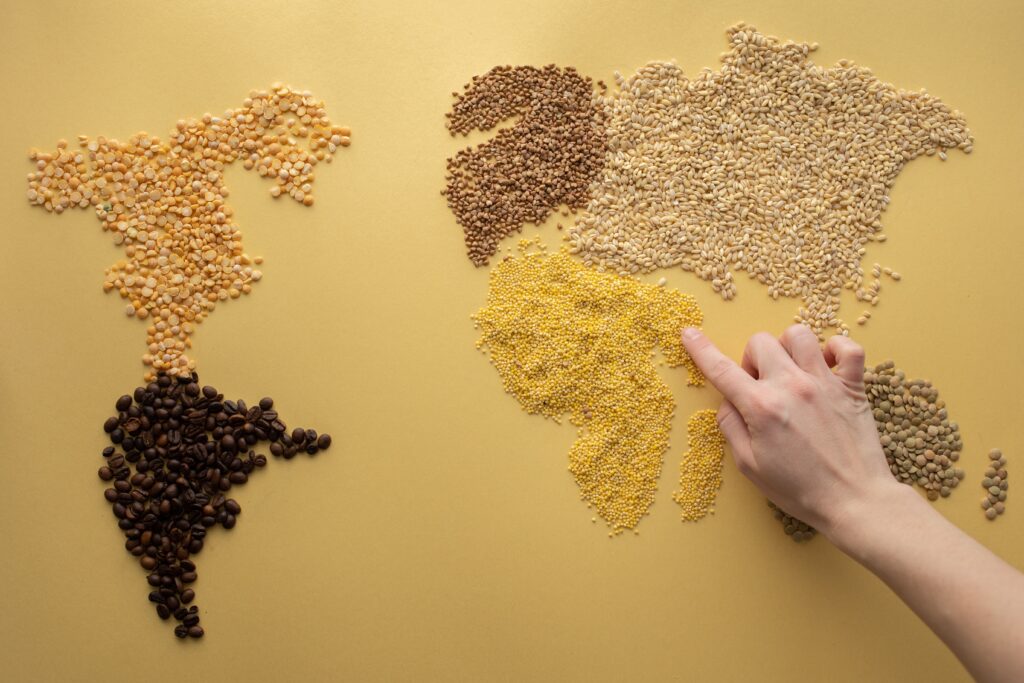
Lentils are a great source of whole food proteins and carbohydrates, fiber, and minerals. 100g of cooked lentils contains 116 calories, 9 grams of protein, 20 grams of carbs, and 7.9 grams of dietary fiber3. Lentil’s macronutrient combination makes for a perfect post-recovery meal for athletes, with its combination of lean protein and carbs. They can play a large role in creating a nutrient-rich diet, and come in a variety of colors and types which can add diversity to nearly any meal. Lentils contain a great animo acid profile, but they do not have methionine, meaning lentils only have 8 out of 9 essential amino acids**4. Pair lentils with a simple whole grain such as rice or wheat to complete its protein portfolio.
Lentils are a great source of: Carbohydrates, Protein, FIber, Iron, Magnesium, Phosphorus, Potassium,
Lentil Tips:
– Lentils are a key and delicious part of many Indian recipes. Rainbow Plant Life’s “Vegan Red Lentil Curry” is one of my favorite recipes, and is an easy whole food meal to make.
**Sprouting lentils before cooking makes it so that all essential amino acids are available, including methionine!20
Tempeh (10.6g/100cal)
Tempeh is a traditionally Indonesian food that is created from fermented soybeans. It is one of the best plant based sources of protein, due to being compact. Tempeh is rich in protein and fiber, and contains high amounts of bone-supporting materials such as calcium, magnesium, and phosphorus. 100g of tempeh contains 192 calories, 20.3g of protein, 10.8g of fat, 7.6g of carbs, and 9g of fiber5.
Seitan (19.8g/100cal)
Seitan (also known as Vital Wheat Gluten) is made by isolating gluten protein from wheat. Seitan has one of the highest concentrations of plant-based protein. 100g of Seitan contains 126 calories, 25 grams of protein, 5.3g of carbohydrates, and 0.6g of fat6 – making it a great option when trying to increase protein intake in isolation. Seitan is also an extremely cheap food to make, with vital wheat gluten being sold at cost-efficient prices.
Seitan has all nine essential amino acid, but does not have a significant amount of lysine. Therefore, in order to obtain enough essential acids, it is worth adding a complementary food such as soy sauce, beans, quinoa or any other food with lysine in it.
Falafel (4g/100 cal)
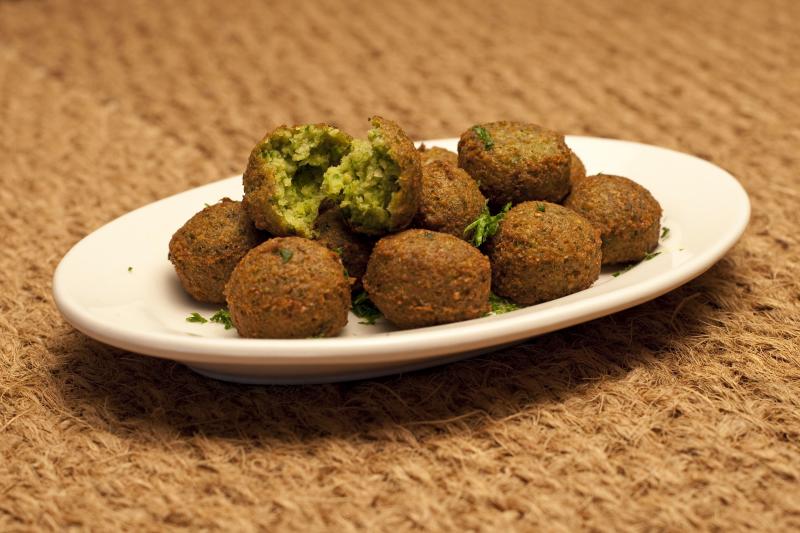
Falafel is a mediterranean dish made from chickpeas/fava beans, herbs, and spices. It is a tasty, crunchy street food that has a great macronutrient profile. 100g of falafel contains 333 calories, 13.3 grams of protein, 17.8 grams of fat, 31.8 grams of carbohydrates, and 4.9 grams of fiber7. Falafel has a well-rounded micronutrient profile, high in vitamins and minerals. Falafel can be both baked or fried, with the fried varient being more common is restaurants and having more fat and calories. Falafel pairs great with healthy fats and proteins such as hummus and tahini, which can make for a very well balanced, high protein meal. Falafel’s main ingredient is chickpeas, making it a complete protein. It is no surprise that Mediterranean diets often get referred to as the healthiest.
Falafel frequently comes in falafel mix boxes, making it a great food to store in the pantry before adding water and baking/frying.
Textured Vegetable Protein (14g/100 cal)
Textured Vegetable Protein (TVP) may sound odd, but it really is a rather common food that you have probably seen or eaten before. TVP is a high protein, high fiber meat substitute made from soy flour. It is highly versatile, and comes in a variety of different forms (soya chunks, soy meat, soy strips, soy flour, etc.) 100 grams of TVP contains 366 calories, 51.1 grams of protein, 32.9 grams of carbs, 3.3 grams of fat, and 17.5 grams of fiber9. It is a great, condensed source of protein and fiber that can contribute strongly to protein goals, as it contains all nine essential amino acids.
Textured Vegetable Protein is a great source of: protein, carbs, fiber, magnesium, copper, folate, iron and thiamin.
Beans (6.8g/100 cal)
Beans are a commonly known source of vegan protein. Though a great whole food, beans have a relatively high amount of carbs as compared to protein— making them a great supplementary source of protein, especially for athletes that will use the additional carbs. 100g of black beans contains 132 calories, 23.7 grams of carbs, 8.9g of protein, and 8.7 grams of fiber15.
One benefit of beans is that there is a lot of variety with them, and experimenting with different ones can go a long way towards flavorful and nutritionally complete meals.
Soy Curls (10g/ 100 cal)
Soy Curls are a minimally processed, single ingredient food, made exclusively from dehydrated soybeans. They are a great soy protein option for vegans on a whole food diet or who want to avoid processed food, but they tend to be a bit more expensive. 100g of soy curls contains 333 calories, 33.3 grams of protein, 15 of lipids, 16.7g of carbohydrates, and 10g of fiber.
Supplementary Vegan Protein Sources
Fortified Nutritional Yeast
Fortified Nutritional Yeast is the closest thing to a super food for vegans. Made from deactivated yeast flakes, nutritional yeast scores some major nutrition points due to it’s unique nutrient profile and enjoyable taste. Nutritional Yeast is not eaten alone but rather used as a topping or ingredient for just about anything. 1 serving (16 grams) of nutritional yeast contains 60 calories, 8 grams of protein, 5 grams of carbs, 0 grams of fat, and 3 grams of fiber. It contains all nine essential amino acids, and is jam-packed with vitamins and minerals that vegans need such as: B12, B6, Folate, Biotin, and Riboflavin.
Nutritional Yeast has a nutty, cheesy taste and is a fantastic source of additional nutrition and umami taste.
Nutritional Yeast Tips:
– “Nooch” is a very flexible food, and can be used for a variety of things. Try out blended cheese or gravy recipies.
Tahini (8g/ 190 cal serving)
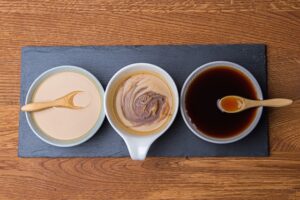
Tahini is a seed butter made from ground, toasted sesame. It is a major ingredient in Mediterranean diets, and can be eaten on its own when seasoned and mixed in. It is a nutrition packed food, and a great source of healthy fats, protein, and minerals. 2 tablespooons of tahini (28g) contain 190 calories, 7 grams of protein, 16 grams of fat, and 4 grams of carbs8. The majority of the fat in tahini are monounsaturated and polyunsaturated fats, making it a great source of healthy fats.
Because tahini is a sesame seed derivative, it is not a complete protein, and contains sufficient amounts of 8 out of the 9 essential amino acids (low in lysine)
Peanut Butter (7g/190 cal serving)
Peanut Butter is a classic protein addition. Versatile enough to be added in breakfast meals, snacks and smoothies, peanut butter is a great way to get additional protein with healthy fats. 1 serving of peanut butter (32g/2 tbps) contains 190 calories, 7 grams of protein, 8 grams of carbs, and 16 grams of fat12.
Quinoa (8.1g/ 222 cal serving)
Quinoa is an edible seed from a flowering plant that is one of the most nutrition dense grain-like protein options. A 1-cup serving of 185g of cooked quinoa contains 222 calories, 8.14 grams of protein, 39.4 grams of carbs, 3.55 grams of fat, and 5.18 grams of fiber11. Quinoa is a whole food with complex carbohydrates and a low glycemic index score of 55, making it one of the best grain substitutes. It is a complete protein with high iron, calcium, and vitamin contents, making it a strong pairing with other main protein sources.
Quinoa is a great source of: protein, carbs, healthy fats, fiber, iron, calcium, magnesium.
Chia Seeds (4.7g/138 cal serving)
Chia seeds are nutrition packed tiny superfoods and a great protein addition. 1 serving of chia seeds (28.3 grams) contains 138 calories, 4.7 grams of protein, 8.7 grams of fat, 11.9 grams of carbs, and 9.8 grams of fiber13. Chia seeds are renown for being one of the best sources of omega 3 ALAs, with 75% of the fats being Omega-3 and 20% being omega 6s. This makes chia seeds one of the best known plant sources of omega 3s14.
Chia Seeds are a great source of: Omega 3s, Protein, Carbs, Fiber, Iron, Calcium, Zinc.
Soymilk (8g/131 cal serving)
Soymilk has highest protein out of all vegan “milks”. 1 cup of soymilk (243g) contains 131 calories, 8g of protein, 4.2 grams of fat, and 15.3 grams of carbs16.
High Protein Vegan Snacks
Edamame (11.9g/ 121 cal serving)
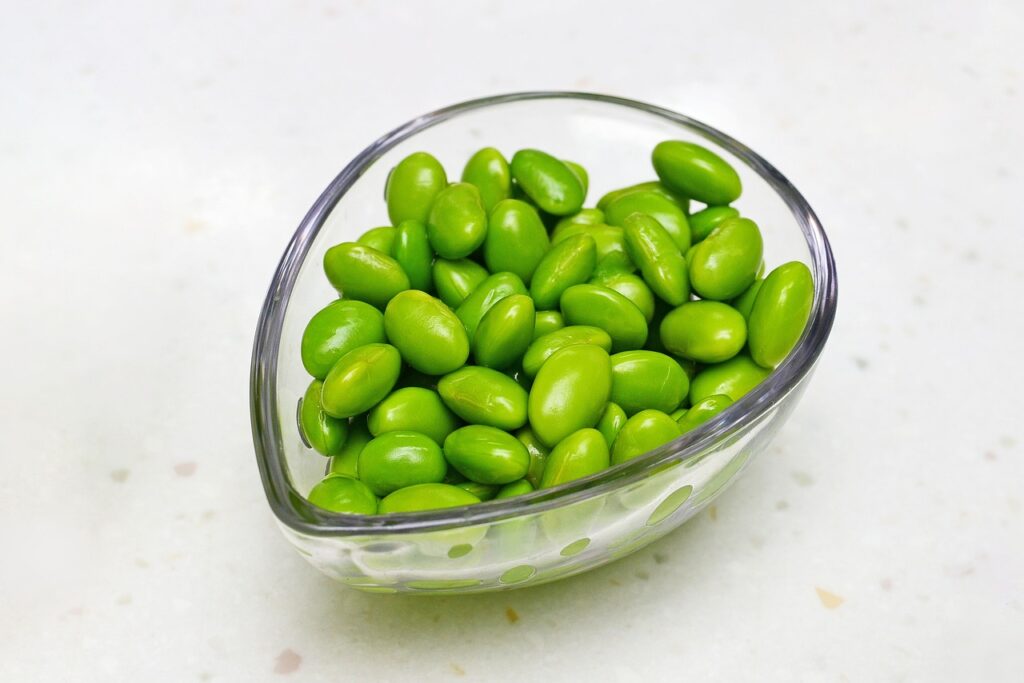
Edamame is a japanese dish that consists of whole, immature soybeans in a pod. They are a healthy, low calorie whole food option and a great vegan snack. 100 grams of edamame contains 121 calories, 11.9 grams of protein, 5.2 grams of fat, 8.9 grams of carbs, and 5.2 grams of dietary fiber10. Edamame is a complete protein.
Edamame is a great source of: protein, carbs, fiber, iron, calcium, omega 3 fatty acids.
Ezekiel Bread (6g/ 90 cal serving)
Ezekiel bread is a nutrient packed whole-grain bread made from sprouted legumes. The sprouted factor in ezekiel bread makes it low in phytate17, which can keep the body from absorbing nutrients. A 1-slice serving of ezekiel bread (40g) contains 90 calories, 6g of protein, 16g of carbs, 1g of fat and 3g of fiber18.
Almonds (6g/ 165 cal serving)
Almonds are a calorie and nutrient dense food with a high amount of monounsatured fat and protein. One serving of almonds contains 165 calories, 6g of protein, 14g of fat, 6g of carbs, and 3g of fiber16.
Pistachios (6g/ 170 cal serving)
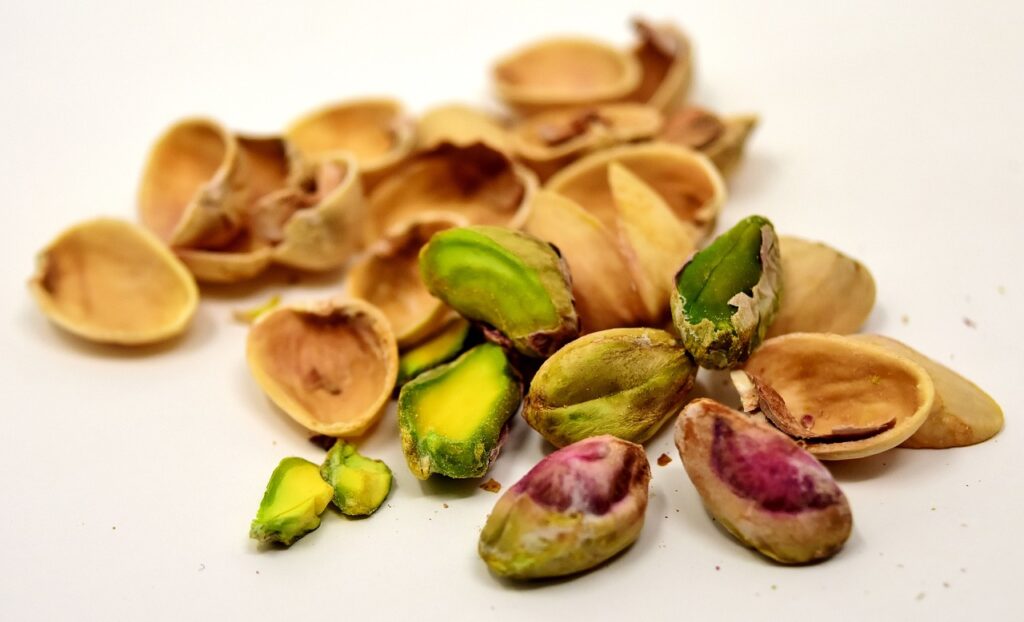
Pistachios are a tasty snack grown from the seeds of the pistachio tree. One 30g serving of pistachios yields 170 calories, 6g of protein, 14g of fat, 8g of carbs, and 3g of fiber, making pistachios a balanced snack19
Vegan Protein Powders
Vegan Whey Protein (22.2g/100 cal)
Yes, you read that right. Vegan whey protein is a real thing, and is one of the coolest food innovations of recent time. Vegan whey protein is real whey made from fermentation with flora, and it produces an identical protein to the whey from cows. Non-animal whey is not plant-based, since it contains dairy, but it is vegan since it is an entirely animal and cruelty free process.
90 calories of Perfect Day’s vegan whey protein contains 20 grams of protein and 4.7 grams of BCAAs. It also contains no lactose or hormones, since the process does not come from cows.
You can read more about the fermentation process from perfect day’s website.
Pea Protein Powder (19g/100 cal)
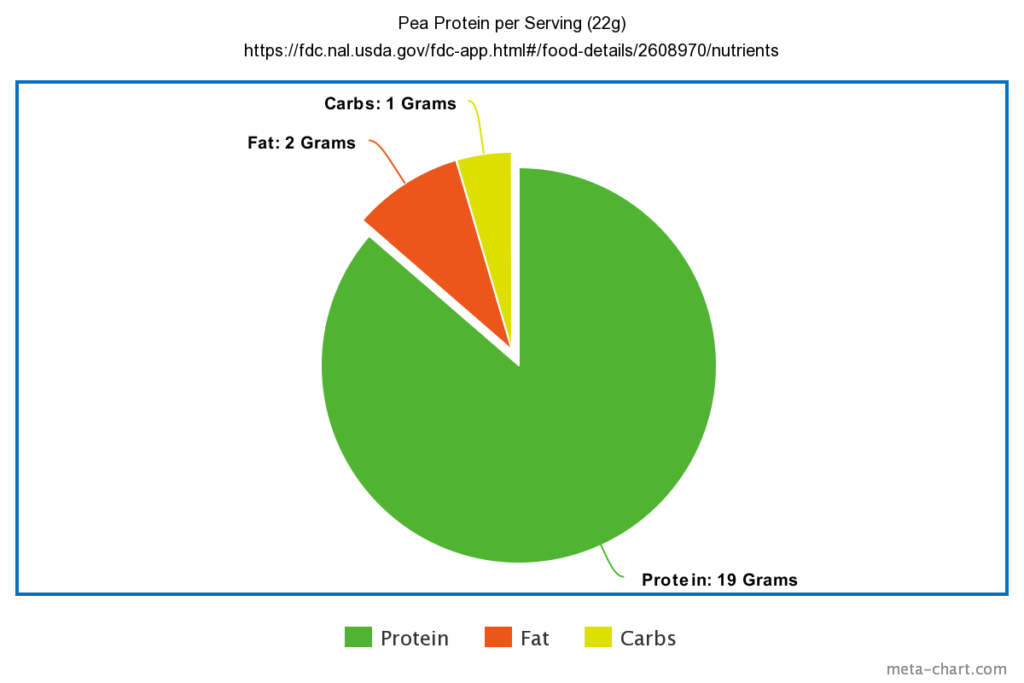
Pea Protein Powder is the gold standard of vegan protein powder, and the only one that can stand toe-to-toe with whey. One 22 gram serving of pea protein contains 100 calories with 19 grams of protein, 2 grams of fat, 1 gram of carbs and 5 mg of iron.
Pea protein is a popular choice because it is both a complete protein and high in BCAAs, making it an optimal choice for muscle synthesis and repair20. The benefits of pea protein don’t stop there— as pea protein is one of the best foods for satiety/feeling full.21
You can click this link to the read the full guide to pea protein I wrote, backed with scientific studies and nutrition information.
Pro Tip: Combine Pea Protein and brown rice or hemp protein in a 70:30 ratio for a more optimal amino acid composition
Soy Protein Powder (26.3g/100 cal)
Soy protein powder has traditionally been one of the most common used vegan protein supplements. One 28.3g serving of soy isolate contains 95 calories with 25 grams of protein, 1 gram of fat, and a handful of associated vitamins and minerals23.
Soy protein is a great choice for general protein intake, but does have a couple drawbacks when compared to whey and pea. The first is that soy has lower BCAA content than whey/pea, making it a bit less efficient when it comes to muscle synthesis24. The second is that soy is commonly used as a main protein source (tofu, tempeh, seitan, edamame), and it is generally better to vary your nutrition to create a more balance diet.
That said, soy is a complete protein, and a great nutrition choice.
Hemp Protein Powder (10g/100 cal)
Hemp is a useful protein powder on its own, but it really starts to shine when used as a complement. One 31g serving of hemp protein powder contains 120 calories with 12 grams of protein, 13 grams of carbohydrates, 11 grams of fiber, and 6 mg of iron25.
That protein to calorie ratio might not be to impressive on its own, but what makes hemp unique is its amino acid profile — it is highly complementary to proteins like pea, soy and oat. Pairing pea to hemp in a 70:30 ratio can make for an even more nutritionally complete amino acid profile, and is a commonly sold blend.
Other Plant Protein Powders (Pumpkin, Brown Rice, Oat)
There are other plant protein powders that are valuable in their own right. Some other common ones and their key benefits are listed below:
Pumpkin Seed Protein26: 17.3g protein/100 cal, 4g of fat, 3g of carbohydrates. Healthy omega-3s, anti-oxidents, unique nutty taste.
Brown Rice Protein27: 20.2g protein/100 cal. Incomplete essential amino acid profile, great complement to pea protein.
Almond Protein Powder28: 11.1g protein/100 cal. Good source of carbohydrates and fat.
Want More Free Vegan Guides?
Sign up for my monthly newsletter. I promise not to spam. You can expect a monthly, informative guide that has the latest news on vegan food innovation, nutrition, and ethics.
Meet Nathan
Nathan loves to learn and share. A lifelong vegan, he spends his time working towards the goal of a cruelty-free world. He graduated from UC Berkeley with a B.S in economics, and wants to inspire conscious consumption in the food industry.
You can find him obsessing over volleyball in San Francisco.


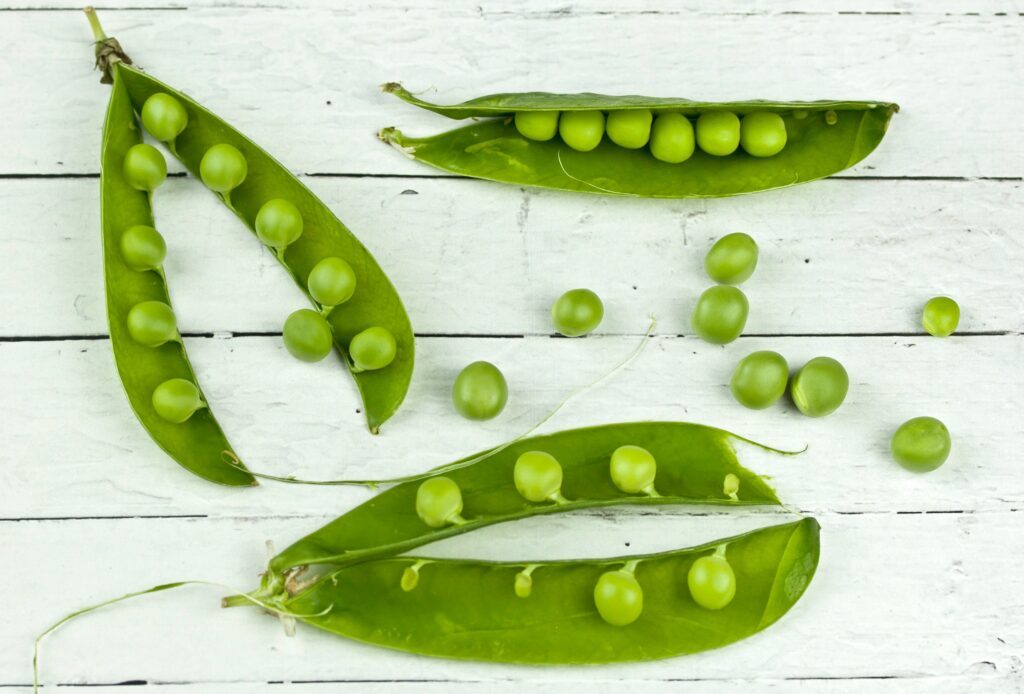
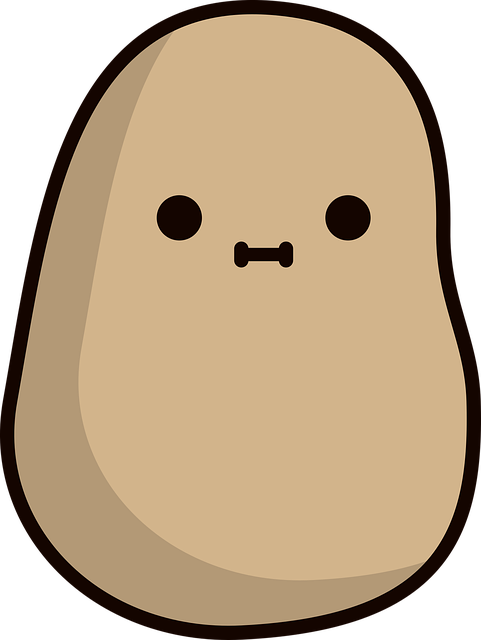
I would prefer to see this list sorted by 100g serving size rather than kcalories